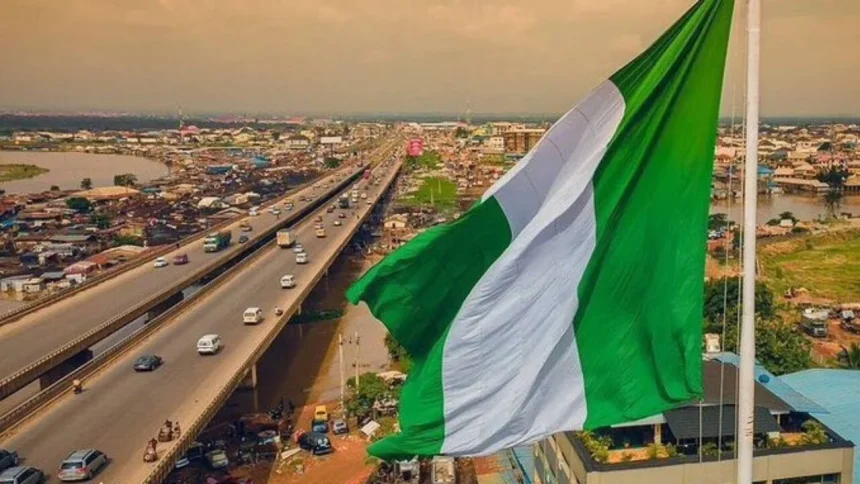ELITE GREED AND THE NIGERIAN TRAGEDY
There are many theories about Nigeria’s underdevelopment, and while each holds some truth, one factor that’s often overlooked is Nigeria’s elite problem. It’s impossible to discuss Nigeria’s challenges without acknowledging the damage wrought by its hypocritical elites since the country’s creation. Elites are typically the backbone of any nation; they provide the capital, intellectual framework, and patriotic drive that build a country. In Nigeria, however, the elites have become vultures, perpetually preying on the nation.
The first wave of Nigerian elites emerged in two main groups: descendants of those who returned from slavery, bringing with them education and exposure, and those connected to traditional institutions, such as offspring of chiefs or those educated by missionaries. By 1960, education had become the hallmark of elite status. However, these elites had only one goal: to displace the British and assume their positions of power. They adopted the British playbook—using violence and fear to control the population and exploit resources with little accountability. This gave rise to an elite class with disdain for the poor and an insatiable appetite for power and money, unlike IN western societies, where elites often championed nationhood and societal virtues.
Upon independence in 1960, Nigeria’s elites wasted no time engaging in a fierce struggle for control, each vying to carve out their territory and establish dominance. This infighting culminated in the Western Regional House crisis of 1966 and the subsequent military coup, which the promoters claimed was aimed at addressing corruption and elite greed.
With the discovery of oil, Nigerian elites went on a spree, transforming national revenue into personal wealth. Oil profits that should have laid the foundation for Nigeria’s development became the plaything of the elite, who spent recklessly. New elites were created through military friendships, and oil wells were handed out like souvenirs.
Fueled by oil money, Nigeria’s elites embarked on a spending spree, adopting a consumption pattern and lifestyle that distorted the nation’s economy and left it perpetually in a coma. They developed a taste for the finest things, creating a class-based society where elites sought to distance themselves from the common people. This new lifestyle became a standard that all Nigerians aspired to achieve thus creating a cycle that has continued to distort the local economy to date.
The worst disservice the elites have done to Nigeria is not merely their parasitic extraction of wealth, but the signals their behaviour has sent to the wider society. Their addiction to foreign consumption, their corruption, and their extravagance have set a tone of impunity that has trickled down to the masses. As the elites showcase a blatant disregard for national development, ordinary Nigerians emulate this “any means necessary” attitude, perpetuating a culture of graft and self-interest. Elites shape societal norms and values, and it’s not surprising that Nigerians have followed their lead, striving to ascend the social ladder and emulate their impunity.
Oil wells were not the only source of the Nigerian elites’ wealth; they also transformed the nation’s revenue into a feast, creating numerous useless agencies and shell companies to syphon off the country’s resources. A significant portion of Nigeria’s elites are involved in government contracting or other businesses that exploit the nation’s revenue, exacerbating inequality and enriching a few while plunging many into poverty.
The wealth amassed by Nigeria’s elites is primarily exported, rather than reinvested domestically. If this money had been invested in Nigeria, it could have boosted productivity and reduced unemployment. However, the elites prefer to expropriate funds from Nigeria into real estate in foreign countries or to fund their children’s education abroad, and maintain lavish lifestyles overseas. This outflow of capital deprives the nation of investment needed for infrastructure and job creation, further weakening the naira and diminishing national prospects.
Despite the current economic crisis, Nigeria’s elites continue to bleed the nation dry. The National Assembly continues to indulge in luxury purchases and wage increases, while the President and other government officials acquire yachts, aircraft, and extravagant possessions. Meanwhile, politicians and government officials engage in corrupt practices, syphoning off public funds and investing them abroad, leaving Nigeria on the brink of collapse.
Another critical behaviour that Nigeria’s elites have bequeathed to the nation is elite collusion. Elite collusion involves turning a blind eye to wrongdoing and protecting one another. This collusion enables the Nigerian judiciary, a member of the elite class, to issue perpetual injunctions that hinder investigations into elite corruption. It also makes it nearly impossible to prosecute elites for crimes, allows security agents to look the other way while elites disregard the law, and facilitates collusion between civil servants and elites to sabotage the nation’s interests for personal gain. it is reported that oil theft in the Niger Delta is driven by a collusion of the Nigerian political elites and military hierarchy whose job is to protect the oil pipelines, similarly, civil servants collaborate with contractors to cook contracts and receive exorbitant pay for contracts that will never be executed. The same scenario goes on in every sector including the private sector where elite greed is driving a wicked kind of capitalism. a nation being intentionally hemorrhaged at all points can not succeed.
Elite behaviour determines the nature of progress and development in any country. Patriotic elites motivated by public goodwill signal patriotic endeavours that lead to prosperity. In Nigeria, however, the elites have sworn to dismantle the nation and feast on its carcass. If Nigeria must have a chance at redemption, then the elites must lead the 0way by using their hold on signalling to create a new Nigeria.


